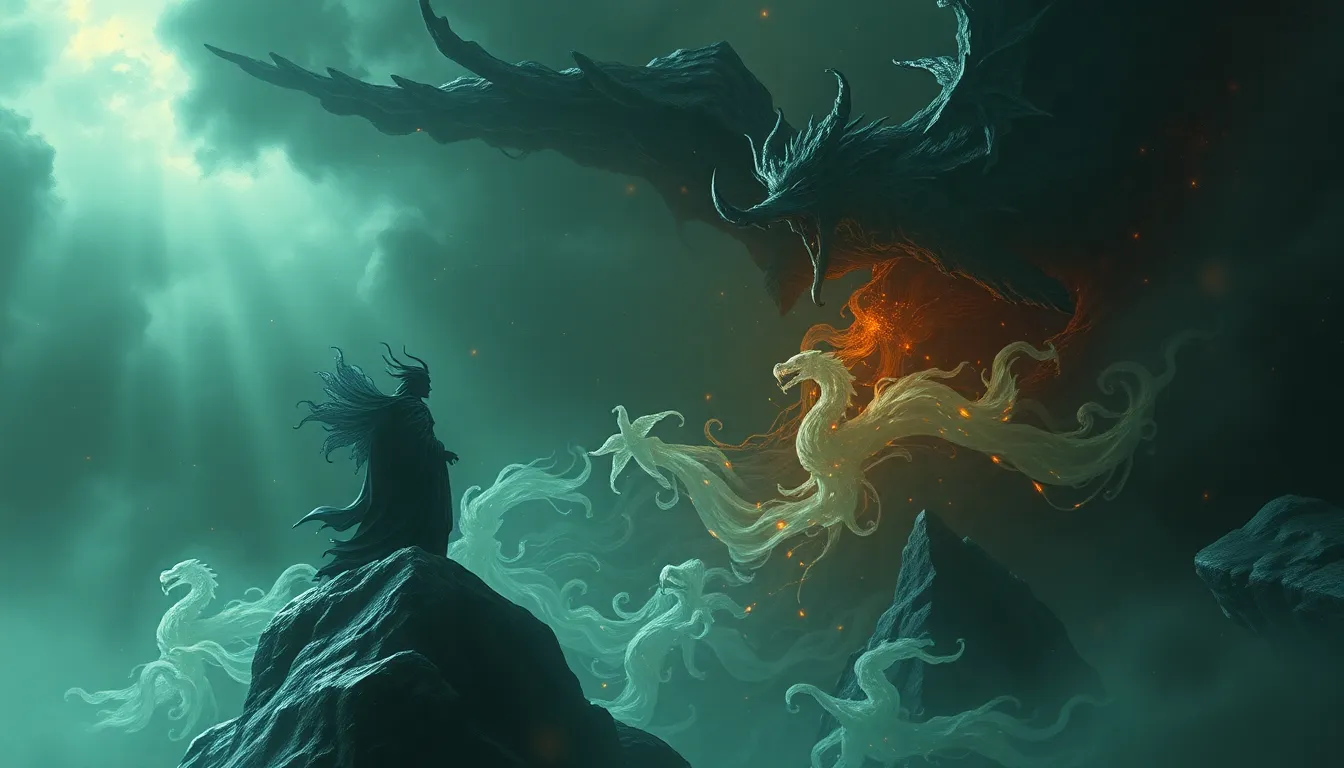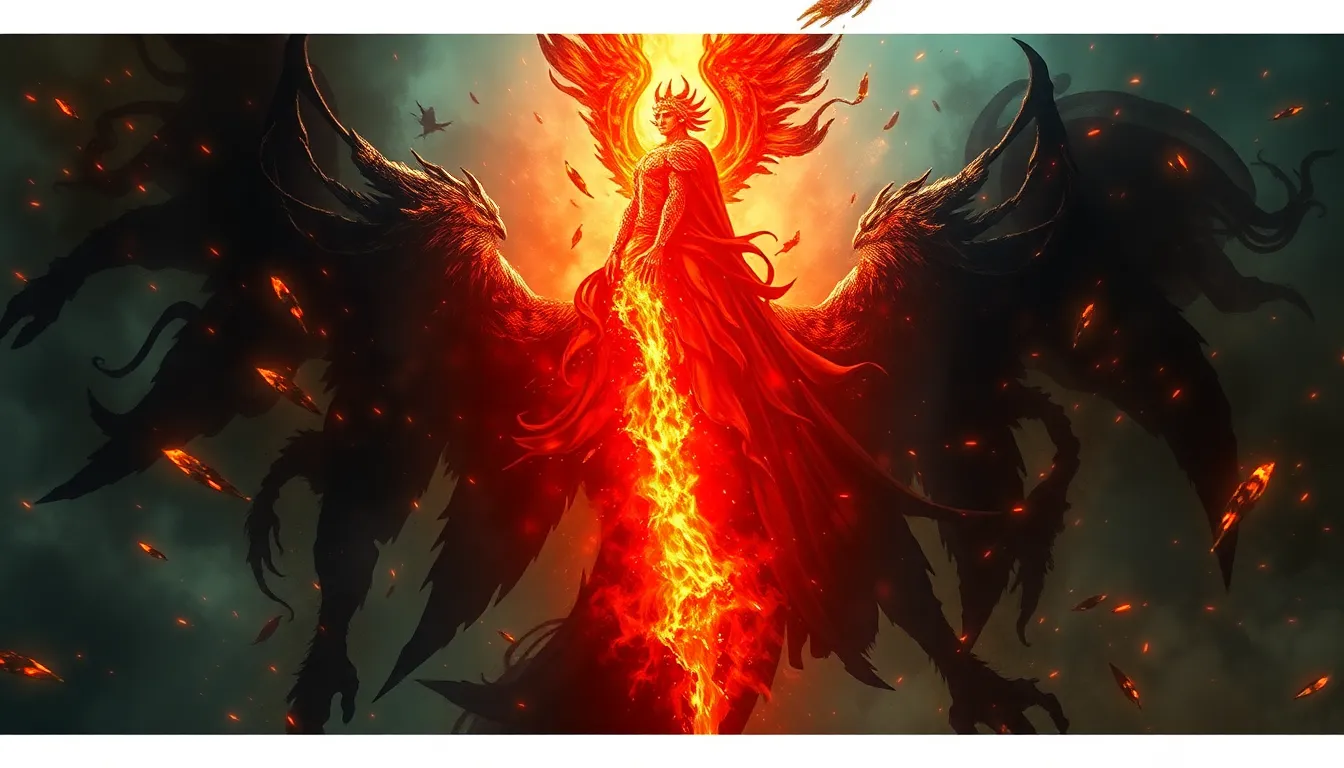Moral Myths and the Nature of Ambition: Lessons from Legends
Introduction: Defining Moral Myths and Ambition
Moral myths are narratives that embody the ethical values and cultural norms of a society. They often serve as a guiding framework for understanding right and wrong, shaping collective beliefs and behaviors. These myths hold significant cultural weight, as they encapsulate the wisdom of generations and provide frameworks for moral decision-making.
Ambition, on the other hand, is a powerful driving force in human behavior. It is the desire to achieve success, power, or distinction, often propelling individuals toward their goals. While ambition can lead to remarkable achievements, it also raises ethical questions about the means by which individuals pursue their desires. This article aims to explore the intersection of moral myths and ambition, examining how legends encapsulate the lessons learned from the triumphs and failures driven by ambition.
The Role of Legends in Shaping Moral Values
Legends are traditional stories that have been passed down through generations, often featuring heroic characters and extraordinary events. They serve a crucial storytelling function, enabling societies to convey important moral lessons and cultural values. By illustrating the consequences of certain behaviors, legends help shape societal norms and individual ambitions.
Historical examples of legends that convey moral lessons include:
- The story of King Midas, which warns against greed.
- The tale of Hercules, emphasizing the virtues of strength and perseverance.
- The narrative of Robin Hood, which explores justice and social equity.
The impact of these legends is profound, as they not only entertain but also guide individuals on how to navigate their ambitions in alignment with moral values.
Ambition in Mythological Narratives
Mythological narratives often highlight ambition through the stories of their characters. For instance, the tale of Icarus serves as a poignant reminder of the dangers of unchecked ambition. Icarus, who flies too close to the sun in his desire for freedom and greatness, ultimately falls to his demise, illustrating the peril of overreaching.
Similarly, the myth of Prometheus, who defies the gods to bring fire to humanity, underscores the consequences of ambition that challenges authority. While Prometheus’s actions are driven by noble intentions, they lead to severe punishment, emphasizing the complex relationship between ambition and moral boundaries.
These myths serve as cautionary tales, reminding us that ambition, when untempered by ethical considerations, can lead to ruin.
Cultural Variations of Ambition and Morality
The interpretation of ambition and morality can vary significantly across cultures. In Western narratives, ambition is often portrayed as a catalyst for success, with figures like Alexander the Great exemplifying the pursuit of greatness. In contrast, Eastern legends may emphasize harmony and community over individual ambition, as seen in stories like that of the Bamboo Cutter, where personal desires are often subservient to familial duties and societal expectations.
Some examples of legends illustrating these cultural differences include:
- Western Legends: Stories of Odysseus, who embodies the quest for personal glory and intellect.
- Eastern Legends: The tale of Confucius, which highlights wisdom and moral integrity over personal ambition.
These cultural contexts shape how individuals interpret ambition, influencing their moral frameworks and personal aspirations.
Ambition as a Double-Edged Sword
Ambition is often depicted as a double-edged sword in legends, possessing both positive and negative aspects. On one hand, it can drive individuals to achieve greatness, as seen in the stories of legendary figures like Joan of Arc, whose ambition led to significant social change. On the other hand, ambition can result in catastrophic consequences, as illustrated by the downfall of figures like Macbeth, whose unchecked ambition leads to moral decay and tragedy.
Case studies of legendary figures demonstrate this balance between ambition and ethical considerations:
- Alexander the Great: His ambition led to vast conquests but also to significant loss of life.
- Joan of Arc: Her ambition for justice and faith inspired a nation, yet led to her martyrdom.
These stories compel us to consider the ethical implications of our ambitions and the importance of balancing personal desires with moral responsibilities.
Lessons from Historical Legends: Case Studies
Examining the stories of legendary figures such as Alexander the Great and Joan of Arc reveals the moral dilemmas associated with ambition. Alexander’s quest for power brought him greatness but also left a legacy of conflict and destruction. Joan’s unwavering ambition for her beliefs led her to become a symbol of courage, yet it ultimately cost her life.
The enduring relevance of these legends lies in their ability to provoke thought about the nature of ambition and its moral implications in contemporary discussions. They remind us that the paths to success can be fraught with ethical challenges.
The Psychological Underpinnings of Ambition in Myths
The psychological theories related to ambition and motivation provide insight into why individuals pursue their goals. Concepts such as Maslow’s hierarchy of needs suggest that ambition is driven by the pursuit of self-actualization and fulfillment. These theories are reflected in the characters of legends, who often embody various stages of ambition and moral decision-making.
The interplay between ambition, identity, and moral decision-making is prevalent in legends, demonstrating how personal aspirations can shape one’s moral compass and choices.
Modern Interpretations of Moral Myths and Ambition
In contemporary literature and media, the themes of moral myths and ambition continue to be reinterpreted. Modern stories often draw from legendary figures, adapting their moral lessons to reflect current societal values. Examples of modern interpretations include:
- The Hunger Games: A narrative that explores ambition, survival, and ethical dilemmas in a dystopian society.
- The Great Gatsby: A tale of ambition and the moral decay that can accompany the pursuit of the American Dream.
The ongoing evolution of the perception of ambition in society highlights the relevance of these themes, encouraging reflection on how we define success and the moral implications of our pursuits.
Practical Takeaways: Navigating Ambition Ethically
As individuals navigate their ambitions, it is crucial to reflect on the ethical implications of their pursuits. Here are some strategies to consider:
- Set clear ethical standards for personal goals.
- Consider the impact of ambitions on others and the environment.
- Seek mentorship and guidance from those who embody ethical ambition.
- Reflect regularly on personal values and how they align with ambitions.
By integrating these strategies, individuals can pursue their ambitions while remaining mindful of their moral responsibilities, ensuring that their journeys lead to positive outcomes for themselves and society.



